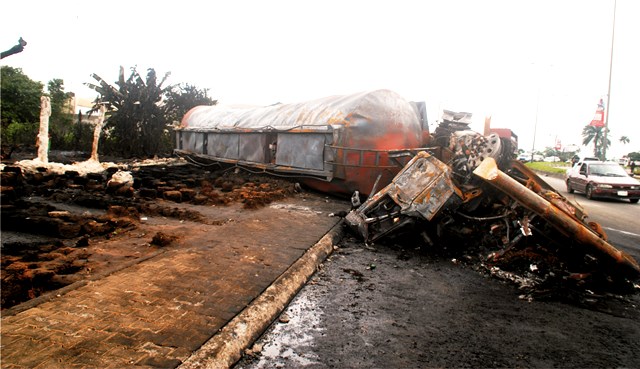Business
Firms Clash Over Nigerian Crude Oil

Oil major BP has clashed with rival, Vitol in the Nigerian crude market, buying up cargoes and taking a big derivative position that may have raised costs for European refiners, according to Reuters.
New trading opportunities arose from August, when broker Sunrise started the first derivative for Nigeria’s four largest crude oil grades – Bonny Light, Forcados, Qua Iboe and Bonga – mirroring derivatives trading in the North Sea.
The derivatives, known as contracts for differences (CFDs), allow traders to bet on whether premiums of the four Nigerian grades versus the Brent benchmark will rise or fall.
The CFDs, also known as swaps, can be used to hedge against price fluctuations during the voyage of a physical cargo to a consumer, which can take weeks. But CFDs can also be used to take a speculative position.
According to five traders familiar with the developments, who asked not to be named because they are not allowed to speak to the media, BP quietly built a long position of up to 10 million barrels in the African CFDs contracts in August, betting the premium of the grades to Brent will rise in September.
Against BP in the paper market were six trading desks, including trading giant Vitol, which took the opposite side of the bet and went short CFDs, betting that African grades’ premiums to Brent would fall, according to trading sources.
The paper deals were done on a back-to-back basis with only BP, Vitol and five other companies aware of the developments.
BP said it does not comment on trading positions. “However, BP welcomes the introduction of the new West African swap to provide greater transparency and aid price discovery in the West African crude market,” it said on Friday.
The trades took place in what has long been a regulatory gray area. London’s Financial Conduct Authority, which does not regulate London trading in the West African crude market, but does oversee the UK Brent crude benchmark, declined to comment.
BP does not produce oil in Nigeria and has not been a large trader of Nigerian oil in recent years, although it has bought some cargoes for its refining system.
After quietly building its paper position in August, BP launched a flurry of bids on the Platts system in September for physical cargoes of Nigerian oil.
BP bid for a total of 22 Nigerian cargoes loading between Sept 3-12, a previously unseen volume in the West African crude market, where a whole month can sometimes go without a single public bid or offer in the Platts window.
BP’s bidding activity ushered premiums of the African grades against the Brent benchmark to as high as $1.70 per barrel compared to a premium of $1.20 a barrel in August, when BP was building its CFDs position.
A difference of 50 cents per barrel would in theory bring a profit of $5 million on a 10-million-barrel CFD position.
The rise in premiums in the physical market made BP a big winner on its long position on the CFDs trade, while Vitol was a loser, according to traders.
Business
PENGASSAN Tasks Multinationals On Workers’ Salary Increase

Business
SEC Unveils Digital Regulatory Hub To Boost Oversight Across Financial Markets

Business
NAFDAC Decries Circulation Of Prohibited Food Items In markets …….Orders Vendors’ Immediate Cessation Of Dealings With Products

Importers, market traders, and supermarket operators have therefore, been directed to immediately cease all dealings in these items and to notify their supply chain partners to halt transactions involving prohibited products.
The agency emphasized that failure to comply will attract strict enforcement measures, including seizure and destruction of goods, suspension or revocation of operational licences, and prosecution under relevant laws.
The statement said “The National Agency for Food and Drug Administration and Control (NAFDAC) has raised an alarm over the growing incidence of smuggling, sale, and distribution of regulated food products such as pasta, noodles, sugar, and tomato paste currently found in markets across the country.
“These products are expressly listed on the Federal Government’s Customs Prohibition List and are not permitted for importation”.
NAFDAC also called on other government bodies, including the Nigeria Customs Service, Nigeria Immigration Service(NIS) Standards Organisation of Nigeria (SON), Nigerian Ports Authority (NPA), Nigerian Maritime Administration and Safety Agency (NIMASA), Nigeria Shippers Council, and the Nigeria Agricultural Quarantine Service (NAQS), to collaborate in enforcing the ban on these unsafe products.







